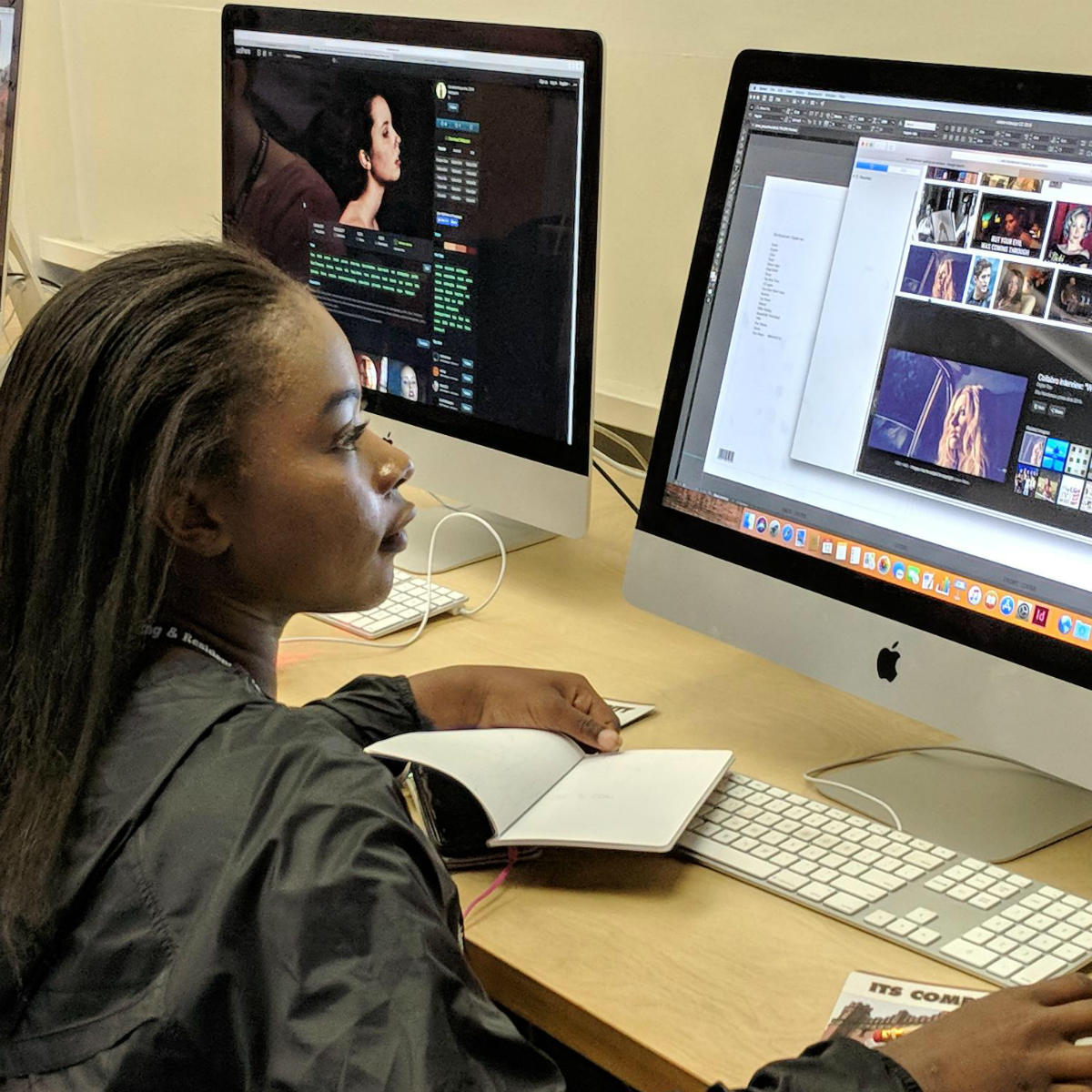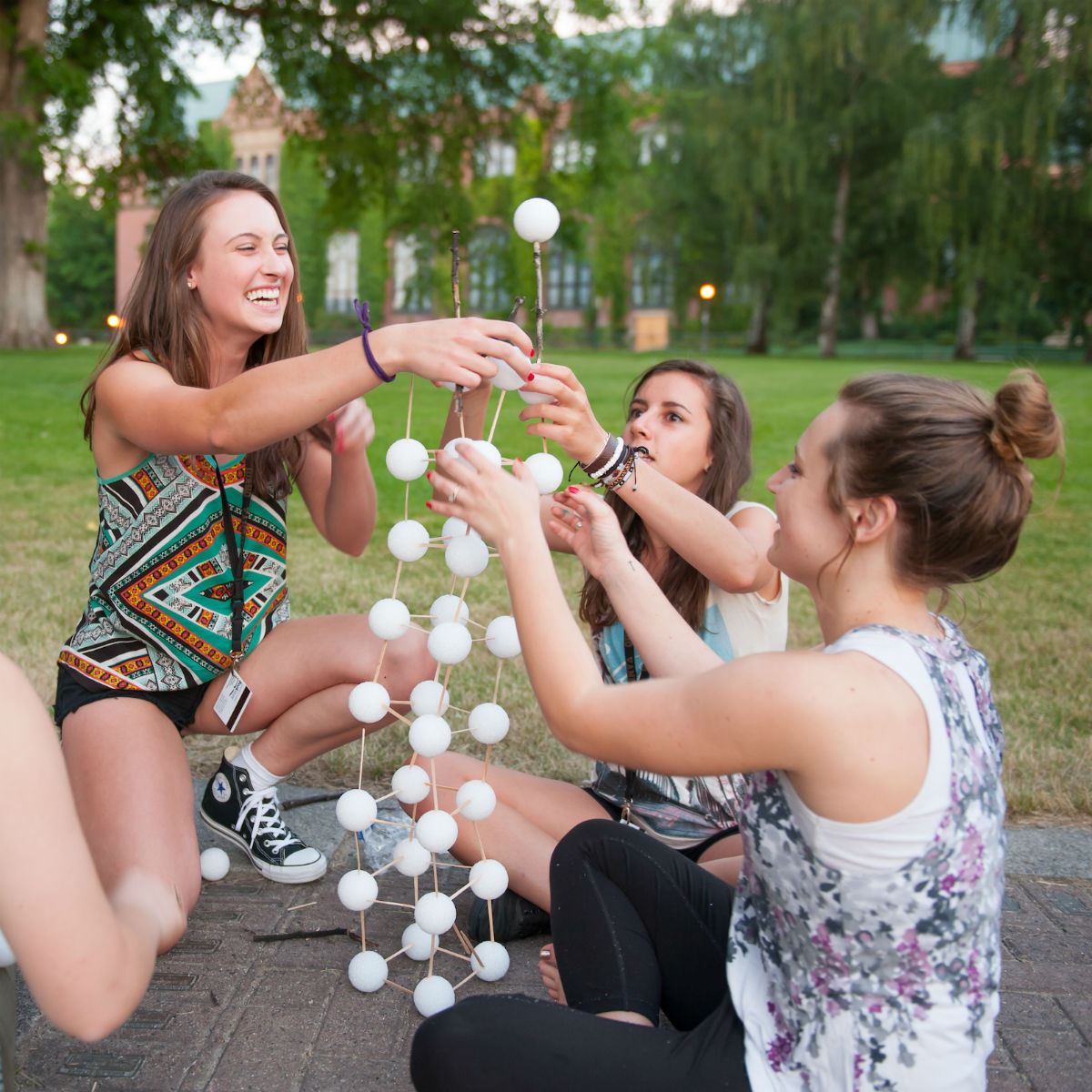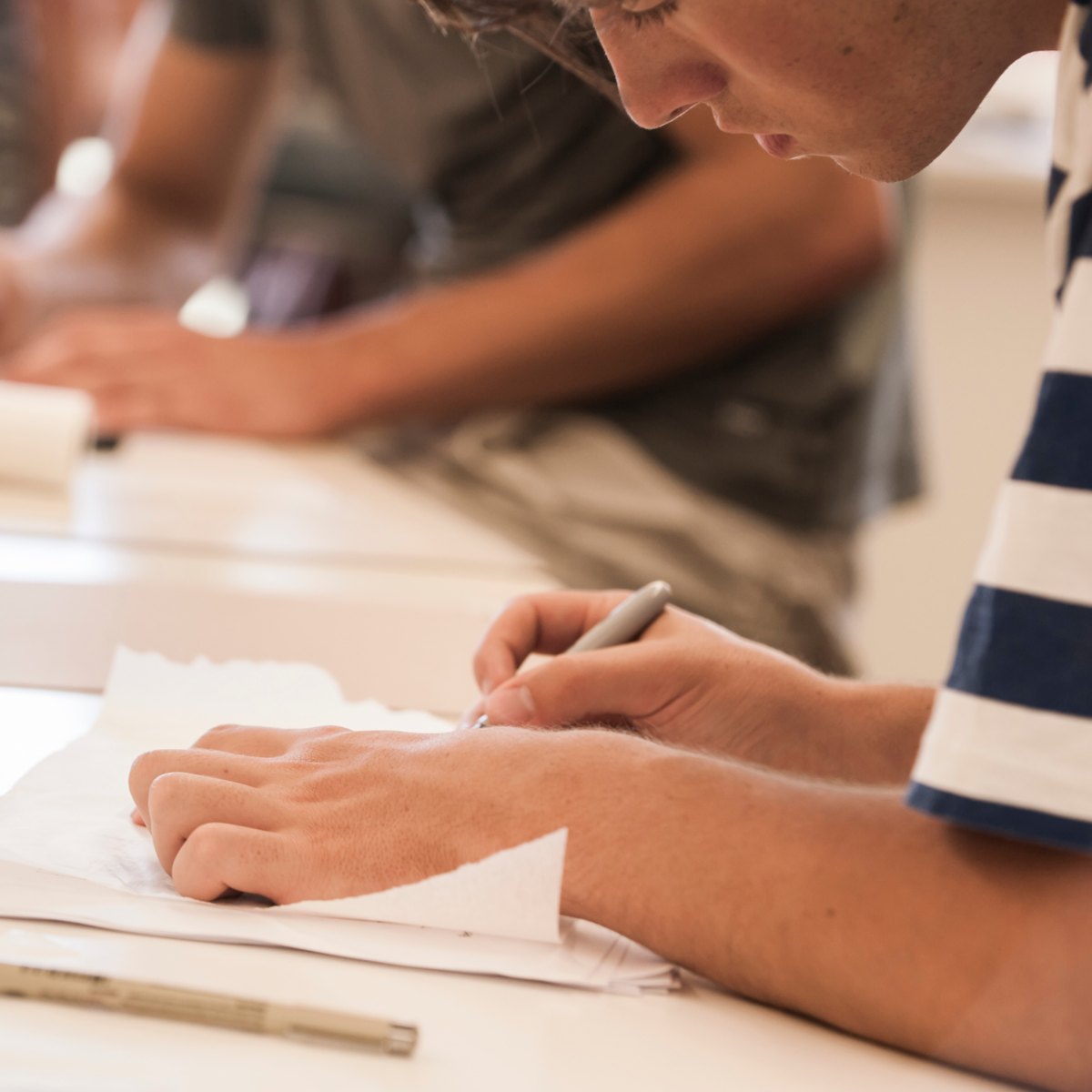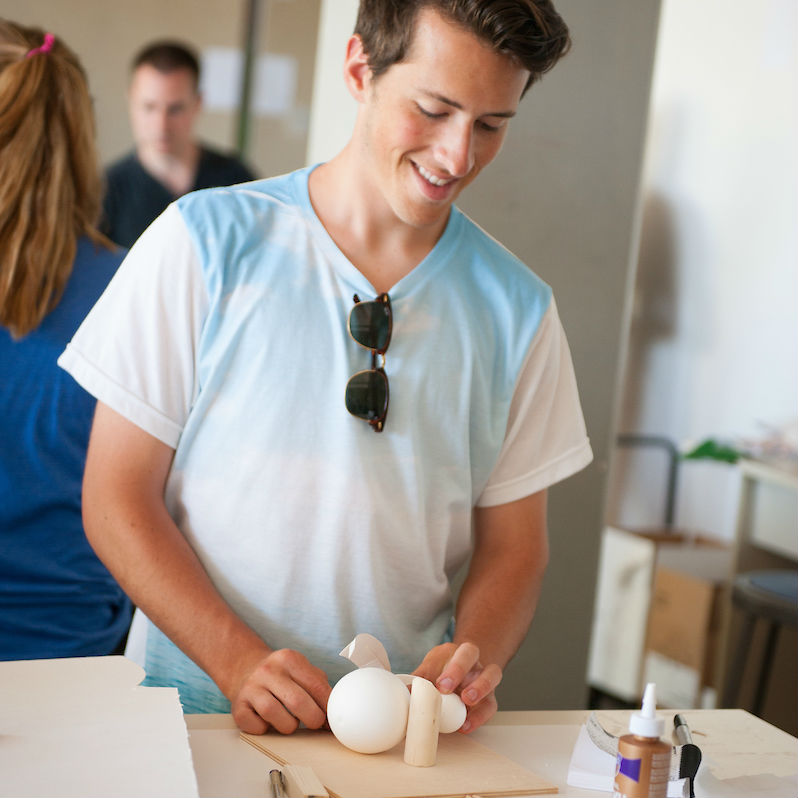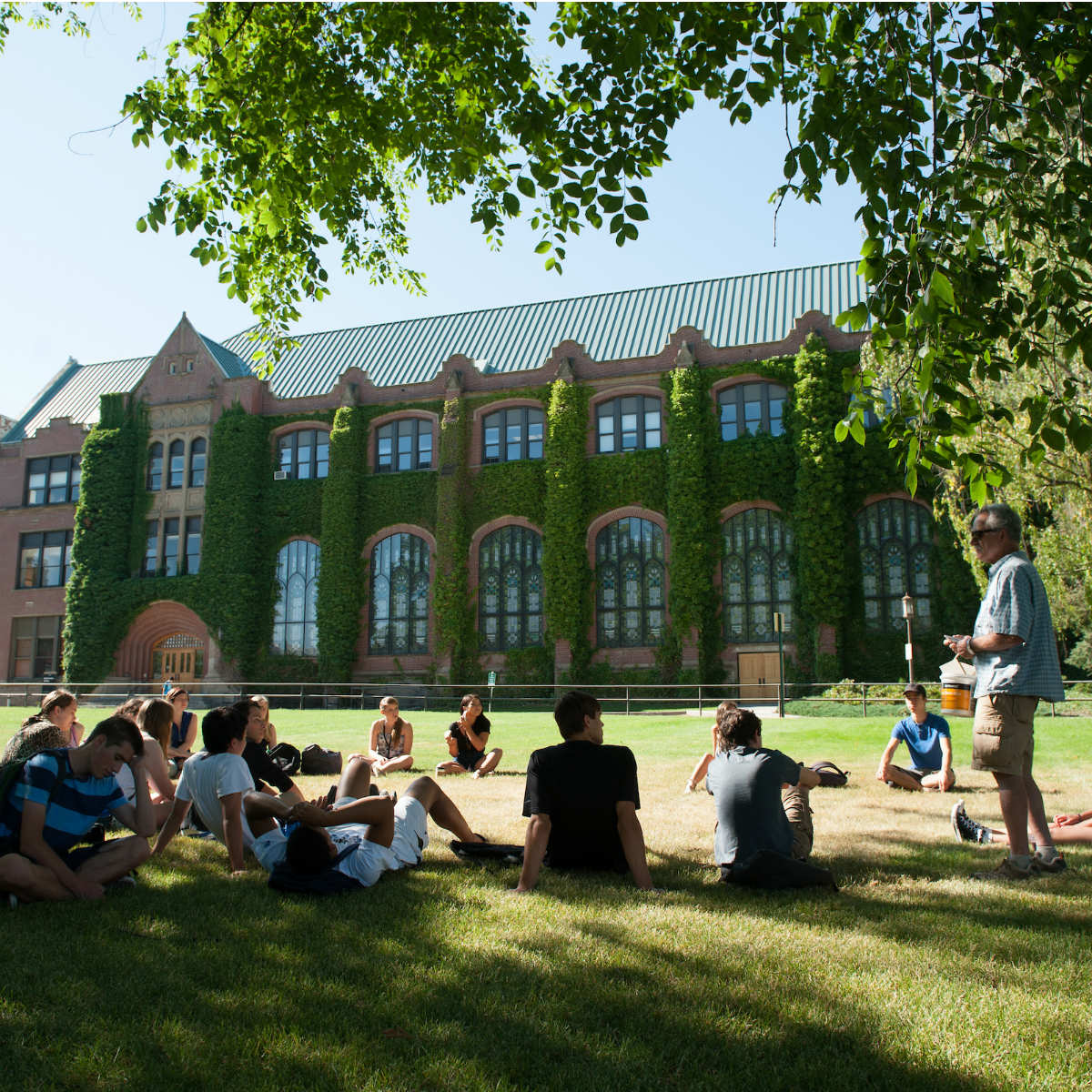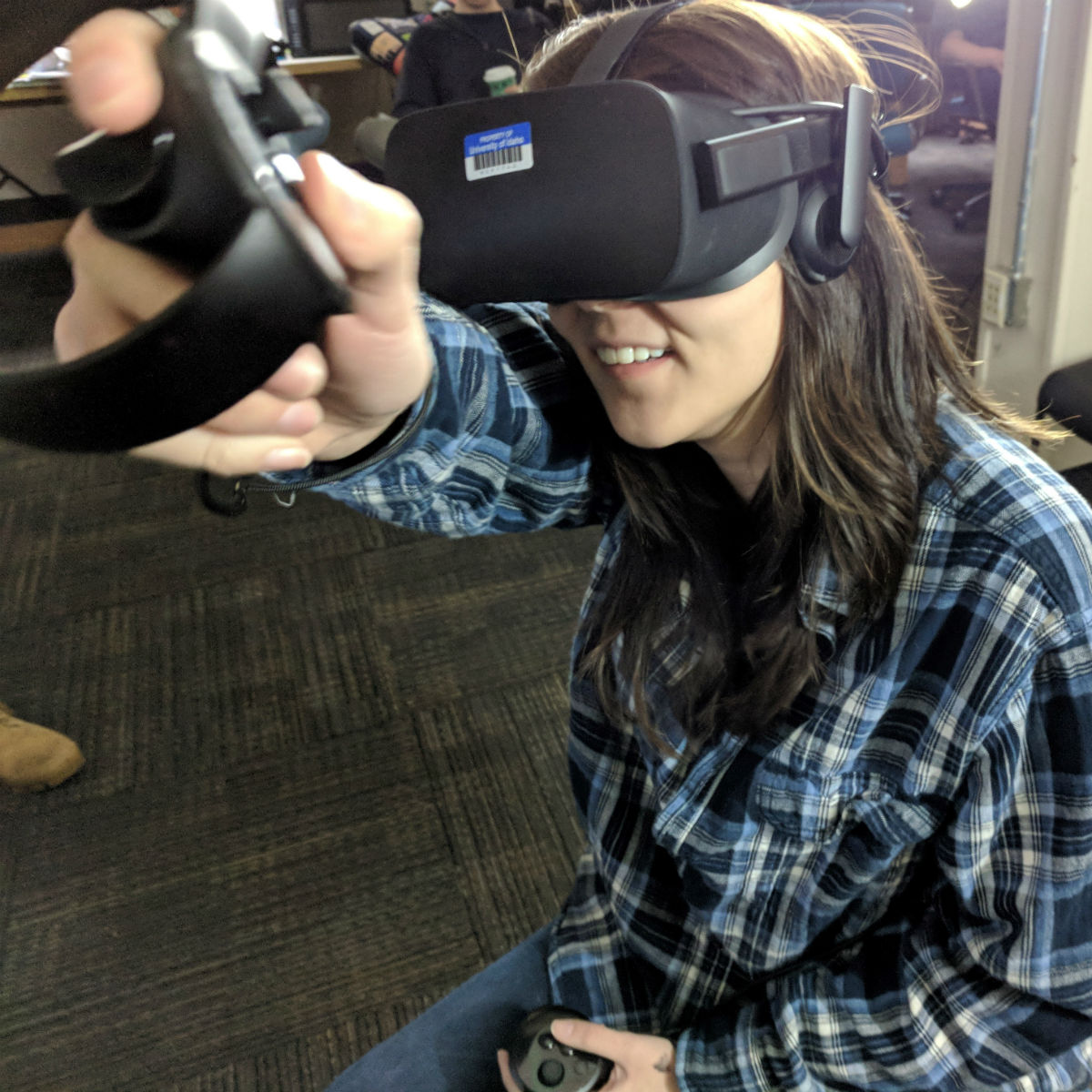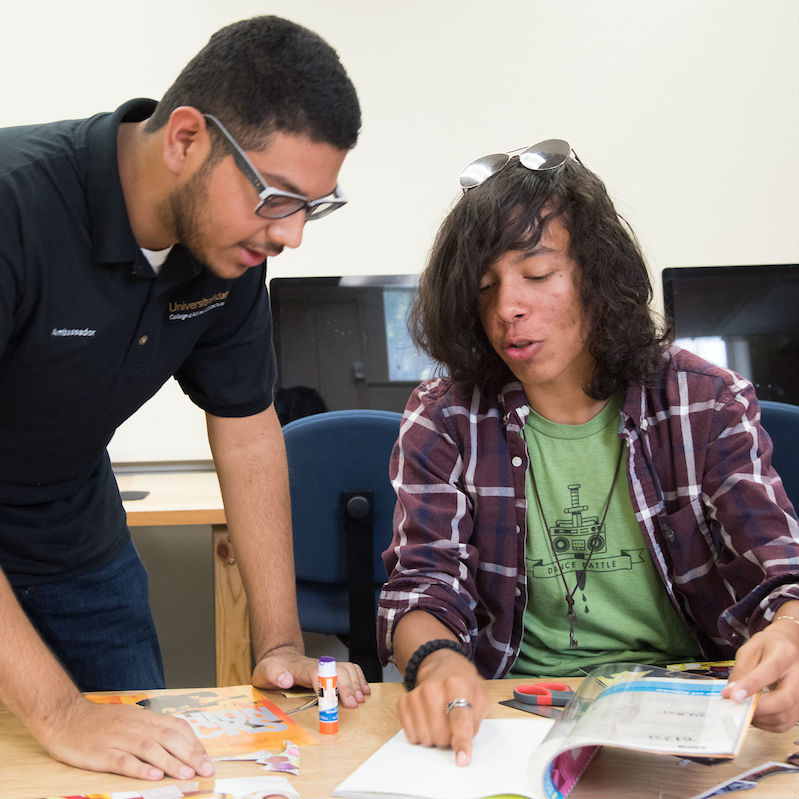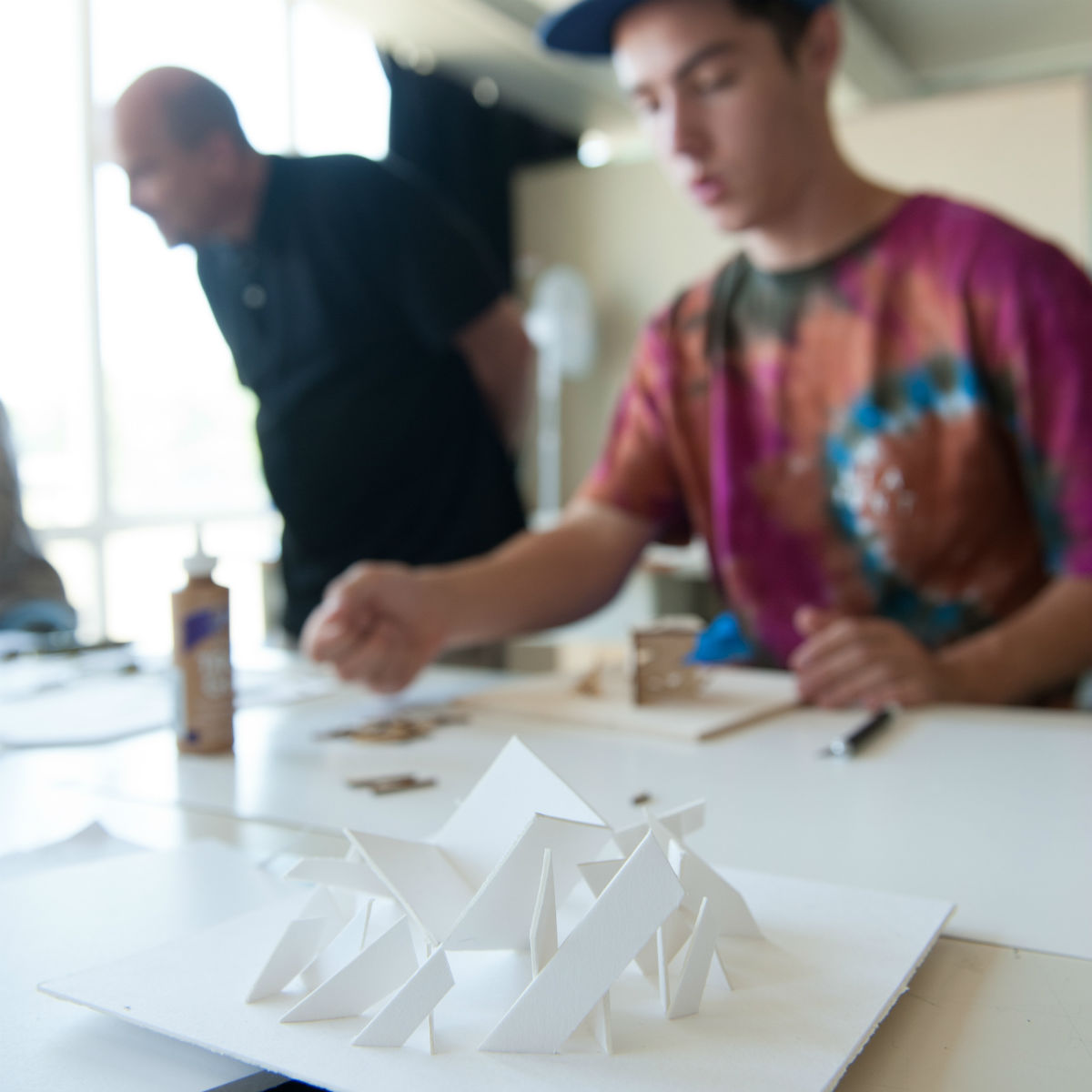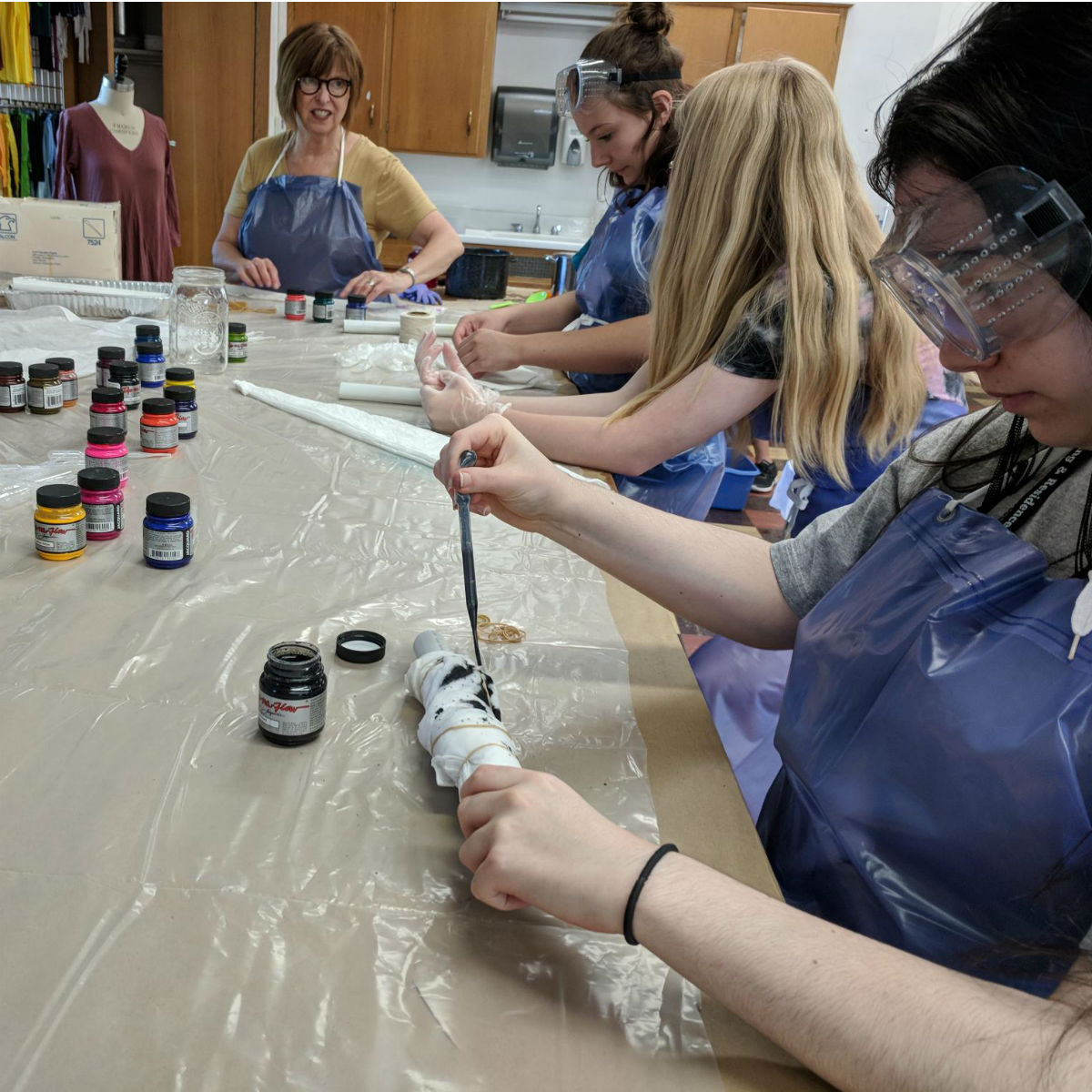Workshops
Moscow Campus Workshops
Participants will select four workshops, one at each of the following session times. All workshops disciplines can be taken separately, but participants are also welcome to choose 4 of the same discipline.
Thursday, June 27
Workshop 1: 9:30 a.m.
Workshop 2: 1:45 p.m.
Friday, June 28
Workshop 3: 9:30 a.m.
Workshop 4: 1:45 p.m.
Thursday
Wool Needle Felting – (Workshop 01: 9:30 a.m. - 12:15 p.m.)
Explore the versatility of wool needle felting by creating 3-dimensional forms and embellishments to fabrics.
Fabric Design with Natural Materials – (Workshop 02: 1:45-5 p.m.)
Use a combination of natural materials and dyes, participants will transform the color and surface of fabrics. Leaves, petals, potatoes, and plants will be used to create printed pattern designs.
Friday
Lasers and Fabric- Lori Wahl – (Workshop 03: 9:30 a.m. - 12:15 p.m.)
Explore the effects of a laser on fabric through etching away fiber and color to strategic cutting that transforms the physical and aesthetic properties of the fabric.
Zero Waste: A Fabric Jigsaw Puzzle – (Workshop 04: 1:45-4 p.m.)
Design and create a product leaving no fabric waste on the cutting room floor. No sewing experience required.
Thursday
The Bridge – (Workshop 1: 9:30 a.m. - 12:15 p.m.)
This workshop presents a classic activity for beginners in design thinking. Participants will work in small groups and will have the opportunity to experience what it is like to design and construct a structural intervention as part of a team. The challenge is to create the strongest suspended structure in 30 minutes using no more than 100 sticks of spaghetti, 1 yard of tape and 1 yard of string.
MegaCity –(Workshop 2: 1:45 - 5 p.m.)
This workshop will introduce compositional and organizational foundations as a method of design thinking in architecture. Participants will use a variety of materials to create a massing structure for their ideal city. Students will all work collectively to define the program and character of the built environments.
Friday
Spatial Analysis – (Workshop 3: 9:30 a.m. - 12:15 p.m.)
During this workshop, participants will explore using observational and tactile methods to capture the essence of sites on campus. Participants will incorporate various techniques used to analyze a site. Then, participants will apply these techniques during an outdoor exercise.
Agency and Placemaking –(Workshop 4: 1:45 - 5 p.m.)
This workshop involves the design of a human-scale intervention on the University of Idaho campus. Incorporating principles of structure and conditional elements, participants will represent their placemaking ideas through hand sketches and model making using a given kit of elements.
Thursday
Nature Journaling in the Arboretum – (Workshop 1: 9:30 a.m. - 12:15 p.m.)
Slow down and dive into the details of the plants, flowers, and trees that make our campus so beautiful. Students will engage in micro and macro observational drawing in the outdoors to explore and record the Visual Elements in our natural world.
Mixed Media Accordion Books – (Workshop 2: 1:45 - 5 p.m.)
Participants will use mixed media approaches including, drawing, watercolor, collage, and relief print to create a cohesive composition in an Accordion Book format.
Thursday
Contextual Clues – (Workshop 1: 9:30 a.m. - 12:15 p.m.)
What drives design? In interior architecture and design, our mission is to create environments that encourage meaningful moments and respond to user needs and aspirations. This workshop explores the role that precedents play in the design process. Like an archaeologist, learn how designers analyze existing everyday spaces then uncover and interpret layers of meaning to inform and inspire future design solutions.
Creature Comforts – (Workshop 2: 1:45 - 5 p.m.)
Furniture is one of the most important factors in any habitable setting, and its design can make or break a space. This workshop begins by examining an existing object and then deconstructing and transforming it into a unique furniture design. From concept and ideation to drawing and model-building, participants will follow the design process to rethink and reuse this kit of parts for a new purpose, finishing with a final physical scale model of their creation.
Friday
Creative Coalescence – (Workshop 3: 9:30 a.m. - 12:15 p.m.)
In interior architecture and design, communication is storytelling in multiple “languages” from words to 2D graphics (i.e. sketches, photographs, and branding) and 3D expressions (i.e. renderings, models, and VR environments). It is a fluid process of seeing, relating, exploring, creating, and sharing. Workshop participants will learn how to develop and communicate an immersive multi-sensory experience and brand identity through interior design.
Conceptual Connection – (Workshop 4: 1:45 - 4 p.m.)
Human beings spend 87-90% of their lives indoors. So, what can this “indoor generation” learn from the natural world? This workshop introduces biophilic design patterns and how they can be used to inspire and inform interior design concepts that invite connection and enhance human health and well-being. Participants will create a conceptual mood board to share their vision for an interior experience inspired by nature.
Thursday
Designing a City Park – (Workshop 1: 9:30 a.m. - 12:15 p.m.)
In this workshop session you will design a city park! Will it include a playground, an amphitheater, pickleball courts, a skate park, and/or a picnic area. You can also include paths and trails, a lighted fountain or water feature, and a teen hang out zone. From New York City’s Central Park and San Francisco’s Golden Gate Park to the Gardens of Versailles, landscape architects design projects that define a community, including great parks!
Designing Streets for People – (Workshop 2: 1:45 - 5 p.m.)
For decades, streets were always designed with principally the car in mind. However, over the last decade, we have been finding new ways to get the most out of our streets by designing them for people and not just for cars. This workshop session will explore all the innovative ways streets can be designed to support vibrant downtowns and neighborhood centers—as shared streets or festival streets, incorporating parklets, and with streetscape elements, such a street trees that thrive in urban environments, furnishings, pedestrian scale lighting, public art, and more.
Friday
Designs that Connect People Together with Nature – (Workshop 3: 9:30 a.m. - 12:15 p.m.)
Some places in nature, such as our national parks, river corridors, wetlands, and other natural resource lands, are already beautiful places that don’t need to be “designed.” However, enhancing the ways that people can interact with these places and the natural experiences they offer requires some special consideration and skill. This workshop session will explore examples of national park projects, state parks, and greenways and then will give students opportunities to design human scale features in these locations to better connect people with nature.
Thursday
Create Your Own Avatar in the Metaverse – (Workshop 1: 9:30 a.m. - 12:15 p.m.)
You will discover how to create an animated avatar inside a virtual world.
Explore Being a Virtual Film Director – (Workshop 2: 1:45 - 5 p.m.)
Direct and film a story in a virtual world.
Friday
Create Your Favorite Game Environment – (Workshop 3: 9:30 a.m. - 12:15 p.m.)
Collect and scan 3D objects around you. Bring them in a 3D software and Unreal.
Create Short Videos for the Web – (Workshop 4: 1:45 - 4 p.m.)
Render and edit your animations and 3D scenes. We will save a short video.







